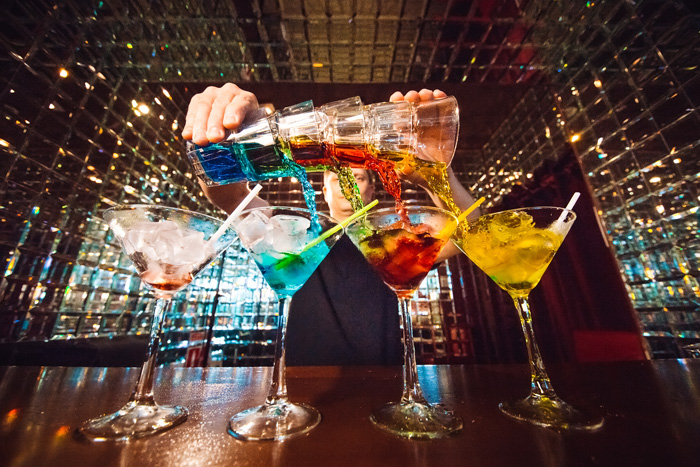BROOKLYN (Workers World Today) — The American Bartender’s School of NYC prides itself as the oldest bartending school and boasts over 100,000 graduates, training professional bartenders for the sleepless and bar-ridden metropolitan city since 1969. The school claims that you can make $300 per night as a Bartender. That cash is 150% more than what one will earn as a living wage worker, paid $15 per hour on a regular eight-hour workday. Some bartenders may make even more per night; consider tips that can be as high as $1,000 for those who work at the poshest bars.
Is it necessary, however, to attend a bartending school to work as a bartender? It depends on whom you may ask. If you ask the American Bartender’s School, the answer is yes; otherwise, there’s no reason for their existence.
Here is what the school promises:
“American Bartender’s School classrooms are set up like real bars. This ensures that graduates know where things are and how to find them when they start work after graduating. In addition, our teachers have all worked, or continue working at busy bars, and will teach you the tricks of the trade you need to know to hit the ground running after graduation,” says the school’s website.
Others disagree: they believe it is unnecessary to enroll in a bartending school. Instead, they advice that if you are seriously thinking about it, knock on doors and acquire bartending skills while working in any bar that gives you the opportunity. Some folks who currently work as bartenders emphasize that experience is more valuable than spending your hard-earned money attending a school. They recommend working your way up from a server position, for instance, while you pick up certain bartending skills and knowledge you need on the job. You have to be determined, a go-getter; you have to network, and beg bar managers (if you must) to practice the art of mixing drinks as a novice. If you succeed, you are not only saving money but you are also avoiding the risk of falling prey to scam schools that lure you and promise to teach you without having a NY state license unlike, for example, the American Bartender’s School.
“I worked as a server and begged them to train me to bartend. Don’t take those stupid courses. Become friends with all your local place’s bartenders and take what you can get,” says Kendra, a bartender in Manhattan, who believes that experiential learning is what it takes to get a bartending job.
Nevertheless, both the proponents of attending bartending school and those against it agree on one thing: You need to be tremendously knowledgeable about mixing drinks to beat the competition; you must become the best in the trade to thrive, and not just survive.
Another bartender from the Swanky Hotel in the Upper East Side adds: “I made sure I was knowledgeable. I know my cocktails more than most other people here. I can’t stress enough, do your research and know your history. No bartending schools either.”
Despite the disapproval of the aforementioned bartenders regarding bartending courses, licensed schools remain alternative pathways to work as a professional bartender, particularly for individuals who lack bar experience and have no clue how to seek bartending opportunities. Bartending schools can help amateur individuals showcase that they have picked up relevant skills and are ready to remix some cocktails like Dirty Martini.
The American Bartender’s School markets itself as an invaluable gateway to the bartending enterprise, appealing to prospective students that it “has relationships with over 1,000 bars and establishments nationwide. Our vast network ensures that American Bartender’s School graduates have the most job opportunities compared to graduates of other bartending schools.” The school offers full certification training courses that take just 1 or 2 weeks, and you are promised “lifetime job placement at NYC’s top bars, clubs, restaurants, and hotels.”
Whether you choose to enroll in a school or work your way up starting as a server, bartending is a lucrative field. But you must acquire outstanding skills to become a sought-after mixologist in this wild, “blame-it-on-the alcohol” city.
If you are serious about the bartending business, take this advice from an experienced bartender:
“Don’t take ‘No’ for an answer. No Craigslist, get out on the streets, and take anything. Know people or ask for the right people, owners or managers. Get any New York City experience and be aggressive. Not off-putting, but aggressive.”
Most importantly, choose the direction that works best for you as you explore this exciting career.

